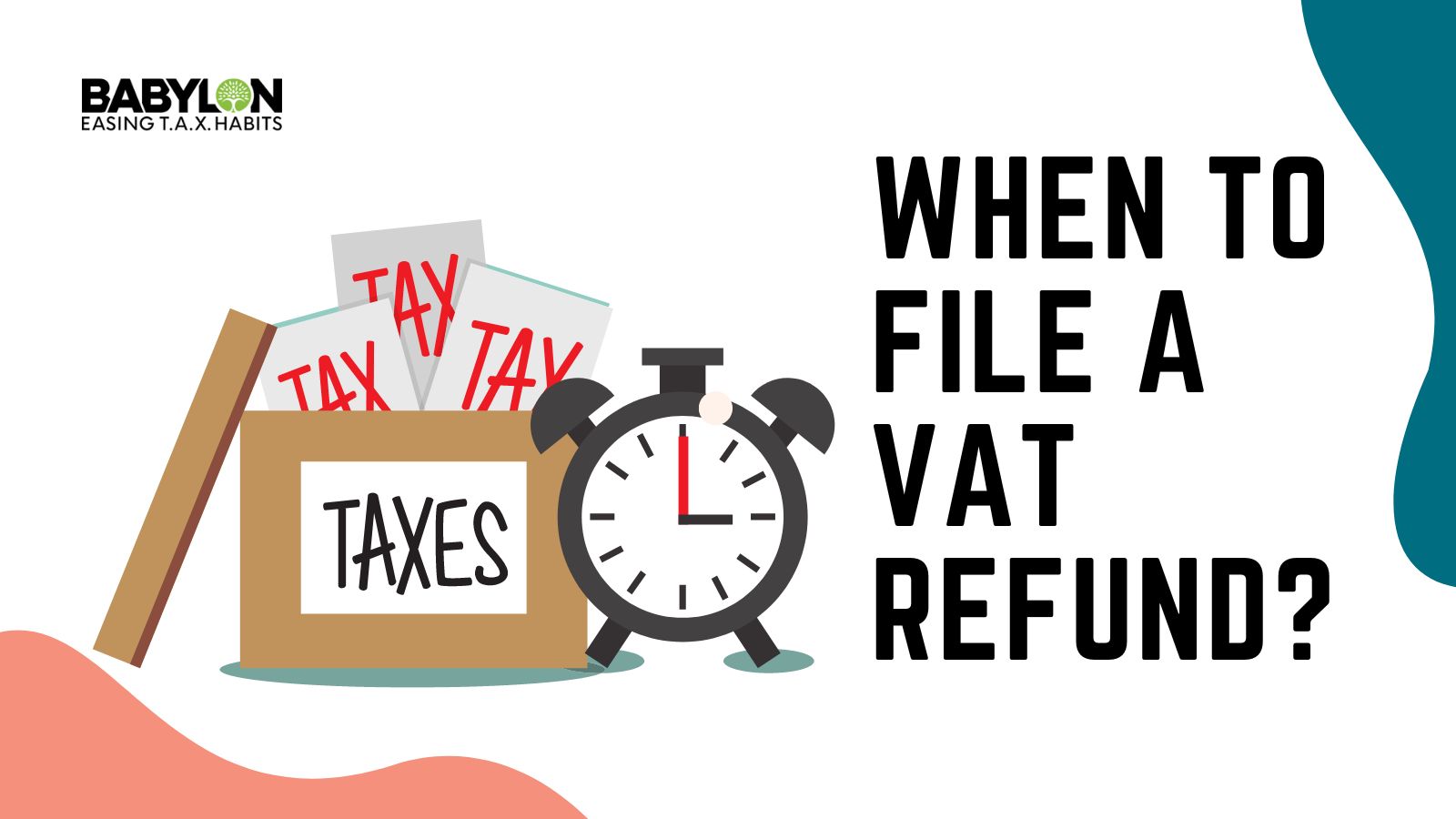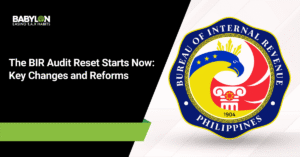Description: Under Philippine law, goods and services are subject to a 12% VAT. Taxpayers may reclaim their money with VAT refund, but only in certain conditions.
Keywords: value-added tax, zero-rated sales, VAT refund, VAT credit, VAT philippines, tax philippines
Out of the multiple tax types out there, one of the major tax burdens is the value-added tax (VAT). It is an indirect tax, so every time a taxpayer purchases goods/services, a 12% input VAT is passed on by the supplier to the taxpayer. Payments of input VAT could be recovered through the output VAT. But what happens if you do not have enough output VAT? How will you recover the VAT payments from your purchases?
Enter, VAT refund.
Are you entitled to claim a refund? Did you file it within two (2) years? Otherwise, filing an application for a VAT refund or tax credit may result in outright denial.
IS VAT REFUND APPLICABLE TO ALL TYPES OF TAXPAYERS?
A VAT-registered taxpayer has the benefit of utilizing its input VAT imposed by its suppliers by crediting them against its output VAT. However, there are certain cases where a VAT-taxpayer was not able to utilize or fully utilize its input VAT. For those cases, the taxpayer’s remedy is to either carry-over the excess input VAT to the succeeding periods. They may also apply for VAT refund or issuance of a Tax Credit Certificate (TCC) . But, for taxpayers who did not foresee the excess input VAT being utilized in the future, their only option is to apply for VAT refund.When is VAT refund/credit applicable?
- Input VAT payments related to zero-rated or effectively zero-rated sales
- Cancellation of VAT registration
- Recovery of Erroneous VAT payments/illegally collected
Among the above-mentioned, VAT refund/credit for input VAT payments related to zero-rated or effectively zero-rated sales is most common. This is due to the large numbers of entities engaged in export sales or sales to registered business enterprises with VAT zero-rating incentives.
In applying for a VAT refund/credit, the claimant must adhere to the documentation requirements to avoid denial.
The Bureau of Internal Revenue (BIR) simplified the process of compliance by reducing the number of documentary requirements.
REQUISITES FOR VAT REFUND/CREDIT FROM ZERO-RATED SALES
The following must be satisfied to be entitled for VAT refund/credit:
- The taxpayer must be a VAT-Registered entity;
- There must be zero-rated sales or effectively zero-rated sales;
- Input taxes were incurred or paid;
- Input VAT payments were directly attributable to zero-rated sales or effectively zero-rated sales;
- The input VAT payments were not applied against any output VAT liability; and
- The claim for refund/credit was filed within the two-year prescriptive period.
If there are both zero-rated and effectively zero-rated sales and taxable or exempt sales, and the input taxes cannot be directly or entirely attributable to these sales, the input taxes shall be proportionately allocated based on sales.
WHERE TO FILE VAT REFUND/CREDIT APPLICATIONS?
- VAT Credit Audit Division (VCAD)
- Revenue District Offices (RDO) and Large Taxpayers Audit Division (LTAD)
CALL TO ACTION
Pursuant to Revenue Memorandum Circular (RMC) No. 14-2021, filing and processing of VAT refund/claims prior to January 19, 2021 shall be made in accordance with the guidelines and procedures in RMC No. 47-2019 and Revenue Memorandum Order (RMO) No. 25-2019. On the other hand, RMO No. 47-2020 became effective on January 19, 2021. Thus, all applications starting on that date shall be made in accordance with the said RMO.
Taxpayers should plan and carefully evaluate each circumstance to avoid negative implications on the application of VAT refund/credit. Further, taxpayers must be armed with complete documents and knowledge with regard to guidelines and procedures. Otherwise, they may consider seeking assistance from professionals in the field.
DISCLAIMER: The advisory is not a substitute for an expert opinion and is purely general research that may have not considered the entirety of other related topics. Any tax and/or compliance advice is not intended or written by the author to be used, and cannot be used, by a client or any other person or entity for the purpose of (i) avoiding penalties that may be imposed on by the regulatory bodies, or (ii) promoting, marketing, or recommending to another party any matters addressed herein.
The opinion or advice expressed in this advisory is based on the facts and circumstances gathered. Any inaccuracy in any of the assumptions set forth above may have the effect of changing all or part of this report, and this report may not apply. The advice is based on our interpretation of the provisions of the Code, the Revenue Regulations promulgated and issued by the tax bureau, BIR positions as set forth in published Revenue Rulings, other pronouncement, orders and circulars, and judicial decisions in effect on the date of this report, any of which could be changed at any time. Any such changes may be retroactive and could significantly modify the statements and opinions/ advice expressed herein In effect, this might render the advisory obsolete or incorrect in partial or in full. We undertake no obligation to advise you of changes that may hereafter be brought to our attention.






